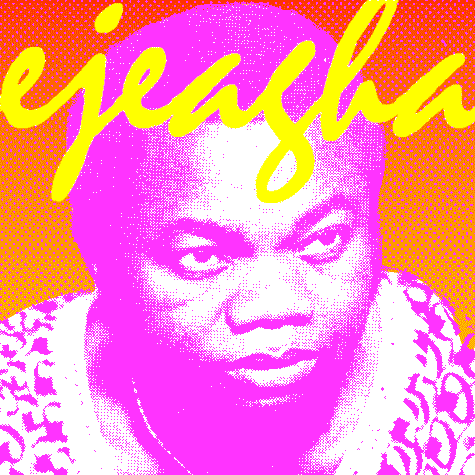It was first one tweet, then a flurry of tweets and soon, Ejeagha was trending on my X timeline.
Yes, it is true. The great and under-celebrated folklorist and outstanding guitarist, Mike Ejeagha, has passed away at the age of 93.
Death is always a complicated event, especially for those who have lived in the public glare. First, my condolences to his family and his loved ones. Then, my condolences to those of us for whom his music means something.
Ejeagha was one of names I discovered early when I began to listen to and research highlife music. It was sometime in 2011. I had gotten my fill of what my peers loved—American hip-hop and R&B, Afrobeats, and Gospel music. It was first Fela, and before I knew it, I was down the rabbit hole I am yet to re-emerge from, thankfully.
I found his chosen title cheeky. Gentleman. There was something self-effacing about it. It aspired to a Victorian modesty that I suspect being the subject of a British colony bestows on you unconsciously. In a sense, the gentleman is a placeholder for citizen. Citizen Ejeagha.
What do we remember Ejeagha for? His guitar-led folkloric Igbo highlife, full of larger-than-life didactic storytelling. I would not know this if I was not told. I don’t speak Igbo at all. I hardly understood it until 2012, during my Youth service in Anambra State, when I acquired barely enough Igbo to conduct a clinic with my patients. But in 2011, when I was first exposed to Ejeagha’s music, I was drawn to his remarkable guitarwork.
The song was ‘Onye Uri Utaba’. His fantastic guitarwork floats on a bassy rhythm not unlike a beating heart. I knew nothing of this folk song’s content. Just that this was unusual but good music. This was not some urban highlife performed in dancehalls by debonair musicians standing; it was a kind of palmwine music deeply rooted in Igbo tradition, performed while sitting. In a sense, Ejeagha saw his work with folklore as a civic duty. Little wonder, a successful fabulist in everyday Igbo life is simply called Akuko Mike Ejeagha.
Ejeagha was taught the guitar by Moses Aduba and Cyprian Uzochiawa, both palmwine guitarists, after he finished school in 1948. There is little doubt that he applied himself to his instrument, given the proficiency with which he played. By 1950, he had formed his first group, The Merry Makers. In 1960, he formed another band called the Paradise Rhythm Band, which had several hotel residences and once included a young Celestine Ukwu, perhaps the finest Igbo highlife vocalist of all time.
The Nigerian Civil War brought disruption, and Ejeagha renamed his band, Premier Dance Band, recording his first album in 1974. This was when he doubled down on Igbo folk music, presenting a radio program where he performed songs based on Igbo folk tales and stories.
Ironically, my favourite Ejeagha song is not folkloric, it is gospel-tinged. Let me play for you the five-minute-long "Yoba Chineke" ("Pray to God") from the LP Ude Egbunam. It begins with an ahorn playing the melody of the chorus. The band quickly respond to the horn’s call with airy vocals, “Yoba Chineke, chekwube Chineke, yoba Chineke, ogaazo yi", which means "Pray to God, put your hope in God, pray to God, He will save you.”
Yes, the song sermonizes. It belongs in the church and Christian gatherings, a beautiful melody that always returns me to a church’s nave like a heady homily.
You are more likely to know the song, ‘Ka Esi Le Onye Isi Oche’. Precisely, its uncanny interlude Gwo Gwo Gwo Ngwo was popularised by a dance challenge that went viral on TikTok this time last year.
In retrospect, it was a fine moment of remembrance, Ejeagha’s last in public life. Watching the frail Ejeagha receive the content creator and skitmaker, Brain Jotter, in his home was a moving moment. I hope Mike Ejeagha died a fulfilled man.
Goodnight Gentleman. Rest in peace.





Everything ends.